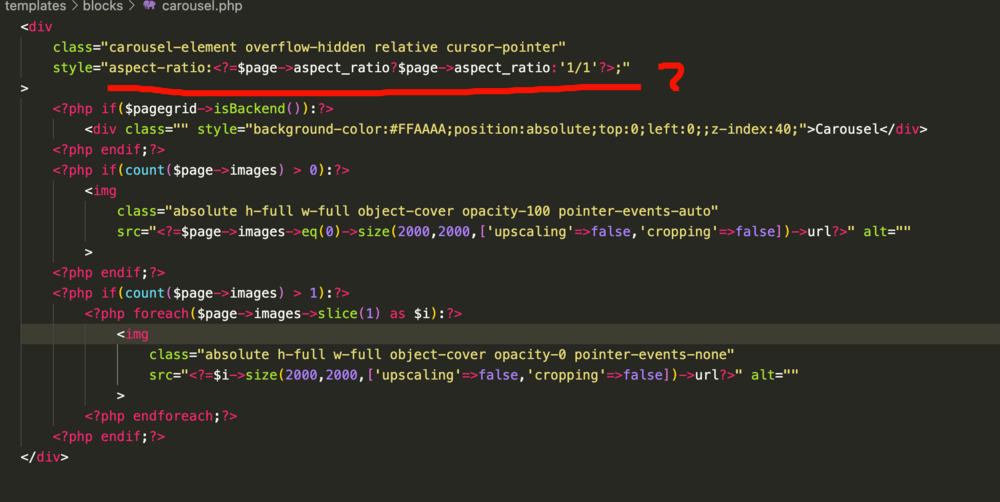
joe_g
Members-
Posts
449 -
Joined
-
Last visited
joe_g's Achievements
-
link to parent in backend leads to list overview instead of actual parent
joe_g replied to joe_g's topic in General Support
fantastic! thanks both! -
Hey hello, Is it possible to get this link to the parent to lead to the actual parent instead of going to the overview? The thing is the overview contains thousands of pages, and it shows the first 30 or so in the tree-view, so you loose track of wher you are. If there is a way to get this link to open up the actual edit page of the parent event instead that would be amazing tx, J
-
Hey all, I've got a curious problem. I changed a project from being multilingual to single language, and after uninstalling the language modules i can't change title or name anymore on any page UNLESS it's unpublished. There is nothing in the error logs, also not in the apache logs. I think this might be some setting that I missed? many thanks
-
I'm trying to show relevant suggestions underneath an article. The suggestions don't have to be available in the current language. I wish there was a way to say "include=not_active", but instead I now do include=all,status!=trash,status!=unpublished Is there any side-effects with the code above? Are there more statuses I should exclude? thanks!
-
I don't manage to list what languages that are set to 'active'
joe_g replied to joe_g's topic in General Support
Ah perfect. I forgot to mention that I get the same result logged out as well as logged in. But it doesn't matter since $a->getLanguages() works fine. thanks! -
I'm trying to loop through languages to see what active languages a certain page has in PW 3.0.229. I can't get anything to work. I've tried three ways (see below) For example. I've got a page with 3 active languages out of 14: I've set it to redirect to default if accessed with missing language, and this works fine Now, how do I list the languages that are active? So far I've tried these three ways: <?php $a = My current Page; $a->status; // = always 1 ?> <?php foreach(wire('languages') as $language):?> <?php wire('user')->language = $language; ?> <?=$a->viewable()?> <-- All true <?php endforeach?> <?php foreach(wire('languages') as $language):?> <?php wire('user')->language = $language; ?> <?=$a->is("status$language")?> <-- all empty <?php endforeach?> thanks!
-
Hey, The Pagegrid site I've been working on for the past months is now online and the client is happy. This visual editor fits them perfectly since they have a good eye for design and likes the control. So far so good in regards to the reordering bug, maybe it's fixed with v.29. Thanks for the help and the fast responses in the past months @jploch!
- 1 reply
-
- 4
-

-

-
Hey, i think I caught a bug and I also managed to get it on video this time. I have a feeling this is significant. I'm also starting to think this is only related to the rich text block. I've got this long page with maybe 80 elements on it. See how the two vertical spacers are together at the bottom of the page? After i add an element on top one rich text is repositioned on the bottom of the page (goes in between the vertical spacers). You can see it here: https://streamable.com/tb27ma?src=player-page-share I'll try now to see if i can get the same error on a clean install. Update: Yes it behaves the same on a clean install. I made a clean install with nothing but the page grid and i added my vertical spacer element and i get the same behaviour with rich text elements moving in a similar manner on the bottom of the page. j
-
Small update, not sure this is relevant but I noticed that the element fall slightly out of line when scrolling up and down: a resize event resets everything again and makes it align again
-
Hey by the way, i just upgraded from .66 to .68. Last time I upgraded was when you mentioned you had made some performance improvements (couple of weeks ago?) and you made linking possible on groups.
-
My latest theory is that it has something to do with dropping large elements. I've got this huge images on the page and if i drop them it can shuffle stuff more than anticipated. At least I suspect the problem is related to that, somehow.
-
So i managed to get this error to happen once in total, in several hours of testing. The editor had it a couple of times. Maybe 3-4? I tried clean install, no problems after about half an hour of testing. But since it happens so rarely it's hard to be systematic about it. One thing i could mention is that there seems to be a bit similar pattern in how the elements are placed whenever this error happens. Things that are not full width seem to be stacked in a staircase pattern, like. Not sure that helps. It reminds me a bit how things can look if you forgot to close a div. So i've been looking around if i had any mismatched divs, but I don't think that's the issue. I'll send a DM with a test version you can look at
-
Here is an example of a carousel. Only using the html+css in the backend, I'm not loading any custom js in the editor. the only bit strange thing here is that i set an aspect ratio. Should be fine?
-













